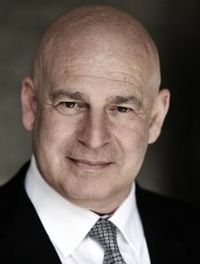Players As Brands – Steven Falk
October 22, 2013
Ever since George Best morphed into El Beatle to become the world’s first football and fashion icon, certain players and their clubs have been set on a collision course. Of course the Belfast Boy did not plan to become a global brand. It was just that his looks, style and performances both on and off the pitch captured the spirit of the time – a psychedelic fusion of sex, drugs and rock & roll. But the emergence of the celebrity culture in football also had a downside as Best tragically discovered.
Sometimes, the commercial pressures that followed success had a corrosive effect. Peter Marinello’s early promise snuffed out by addiction, Eric Cantona’s angry early retirement and Gazza’s injury-fuelled descent into alcoholism showed the fallibility of the heroes loved and scorned in equal measure by a public eager for every salacious disclosure of misbehaviour.
Then along came Beckham. With the talent, the looks, the pop star consort and a support team dedicated to delivering his desire for fame, David Beckham almost single-handedly developed the blueprint for the footballers’ personal brand cult. And where Beckham led, Ronaldo followed. DB7 became CR7 much to the puzzled annoyance of Sir Alex.
Now savvy players with outstanding talent look to promote themselves rather than their clubs, adopting names and positioning that identifies them as a brand rather than a member of a team. Witness the developing profile of the troubled teenage prodigy Ravel Morrison, or “Ravel” as the name on his West Ham and England U21 shirts identifies him.
But what happens when a player’s brand image collides with and even outshines his club’s? Players like Rio Ferdinand and Joey Barton have managed their personal profiles using social media channels on Twitter and Facebook so effectively that they have amassed personal followings greater than the clubs they play for.
Consequently, clubs keen to engage with and monetise social media are looking to piggyback their players’ popularity to promote their own commercial interests. But can it be assumed that players’ followers also support their parent clubs and is it possible or even right for clubs to attempt to exploit their players’ followers in this way?
The challenge for clubs is to help their star players to develop their personal brands without diluting or denigrating their own. In return, clubs must be invited to share in the rewards achieved by successful individuals in the form of subtle cross marketing and endorsement. After all, players build their personal brands on the back of the clubs who pay their wages and in many cases, own their personal image rights.
Few have yet confronted, much less solved this conundrum. But with clubs desperate to drive global fan engagement, players and their advisors seeking to develop personal brands should focus on the benefits to be gained from a collaborative approach. This may reduce the potential dangers they face in the changing room from flying boots and volcanic tantrums.
Steven Falk is director of Star Sports Marketing a consultancy providing advice on sponsorship activation, CRM, brand and affinity marketing. He was previously Marketing Director at Manchester United. You can follow him on Twitter @steven_falk
Star Sports Marketing can help you to devise and implement an effective social media. Visit www.starsportsmarketing.com or email steven.falk@starsportsmarketing.co.uk
{jcomments on}

